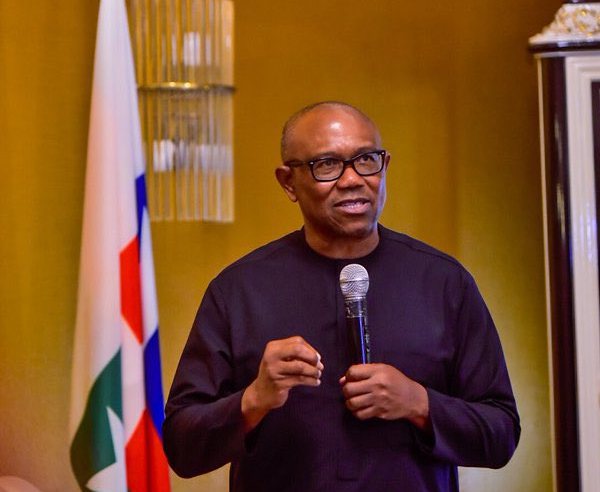The presidential candidate of the Labour Party, Peter Obi has disclosed why men of the Nigeria police force engage in brutality while relating with the citizens of the country.
Newsonline reports that the former Anambra State governor blamed non-professionalism as the reason for police brutality on citizens who they should protect.
The youths’ candidate ahead of the 2023 general election argued that ” a well trained and professional police officer will not engage police brutality.”
“However, weak institutions tend to give rise to impunity. Police officers who abuse human rights or ordered liberties must be held accountable,” he added.
Peter Obi said he would ensure total security reform if elected in the 2023 general election.
The Labour Party presidential candidate stated this while addressing Nigerians in diaspora in New York, the United States.
Speaking on security, Peter Obi said, ” A well-trained and professional police officer will not engage police brutality. However, weak institutions tend to give rise to impunity. Police officers who abuse human rights or ordered liberties must be held accountable.”
He said his administration “will embark on immediate and intrusive security sector reform and governance (SSRG). Relatedly, we must improve the functioning and effectiveness of the police by strengthening their civilian oversight as well as increasing their strength, materiel, financial allocation and enhanced professional training. Our national policing strength must be relative to our national population and meet global standards. We will desist from using Nigerian military for purely civilian police duties.”
READ ALSO: I Didn’t Say Wike Is Not The Father Of His Children- Ayu, PDP Nat Chair
Obi said the relevant security institutions and agencies to tackle insecurity ravaging the country exist, but, identified that the problem with the institutions and agencies charged with the security of lives and properties of Nigerians is no policy coherence, coordination, and implementation of security policies.
“The relevant security institutions and agencies exist. The supporting national security-enabling documents and strategies also exist. The problem is with policy coherence, coordination and implementation.
“There is, for instance, no lead agency for counter-terrorism or counter-insurgency. That will change under my Presidency. We will tweak the security architecture, by offering each arm or agency lead in areas where they have comparative advantage,” he stated.
He added that in his administration, “Security will be in 4 parts: reforming the security sector, with particular emphasis on re-focusing the military on external threats and border protection and police on internal security threats and law enforcement; swift prosecution of criminals, bandits and terrorists; enhanced coordination among security agencies; and upholding the rule of law.”














